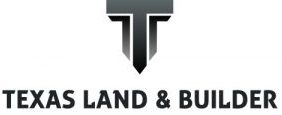
Hiring a financially secure custom home builder is one of the most important steps in ensuring the success of your dream home project. A builder’s financial stability impacts everything from the quality of the work to the timeline of the construction. Working with a builder who has a solid financial foundation means they are more likely to have the resources to complete your project efficiently, pay their subcontractors and suppliers on time, and resolve unexpected challenges that may arise during the build.
What Does Financial Security Mean for a Builder?
A financially secure builder has access to enough capital or credit to cover the cost of materials, labor, permits, and other expenses during the building process. They should have good relationships with suppliers and subcontractors, as well as a solid track record of completing projects without issues related to unpaid bills or liens. A builder who is financially sound can absorb fluctuations in the cost of materials or labor shortages without jeopardizing the progress of your home.
A financially stable builder also carries proper insurance coverage, including general liability and workers’ compensation. This helps protect both the homeowner and the builder from unforeseen liabilities, ensuring that any damage or injuries on site are covered.
Worst-Case Scenarios with an Unstable Builder
When a builder is not financially secure, you run the risk of project delays, unfinished work, and even bankruptcy. In the worst-case scenario, the builder could run out of money during the construction process, leaving you with an incomplete home. This often results in the homeowner having to find another contractor to finish the work, which can lead to increased costs and additional headaches as the new contractor navigates unfamiliar work.
Another potential issue is that the builder may not be able to pay subcontractors or suppliers, resulting in liens being placed on your property. Even if you’ve paid your builder, the responsibility for unpaid debts to suppliers or subcontractors may fall on you, the homeowner. This can complicate selling or refinancing the home in the future.
A financially unstable builder may also cut corners to save costs, compromising the quality of the materials and craftsmanship. This could result in structural problems or the need for expensive repairs after the home is built.
Conclusion
Hiring a financially secure custom home builder is critical to ensuring your project runs smoothly, on budget, and to the highest quality standards. Proper due diligence, including checking the builder’s financial standing, references, and previous projects, can help you avoid worst-case scenarios such as project abandonment or hidden financial liabilities. A solid, trustworthy builder gives you peace of mind and helps ensure that your dream home becomes a reality without costly surprises.
